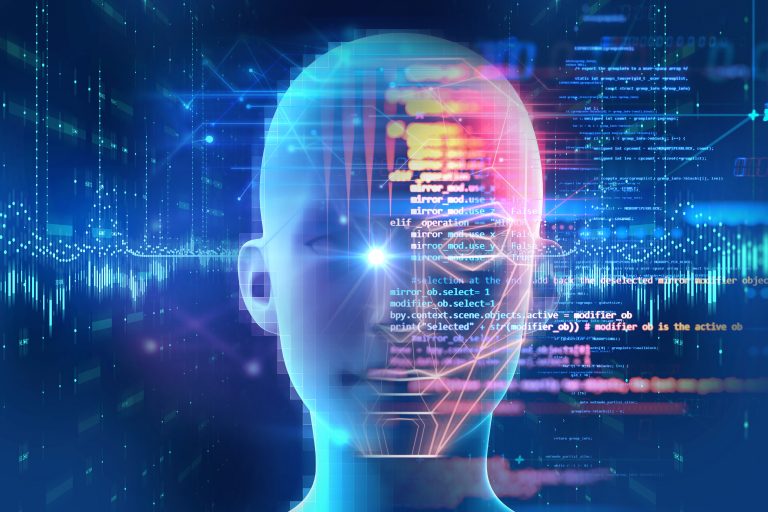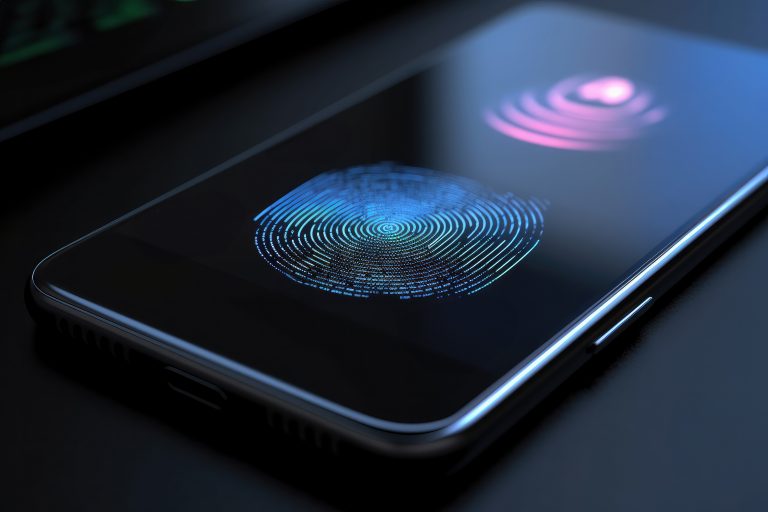Navigating Privacy Settings on Social Media Platforms
December 12, 2023Social media has become a ubiquitous aspect of daily life, making the management of privacy settings increasingly vital. This article…

Digital identity encompasses personal information used for online interactions, which is crucial in today’s digital landscape. It’s essential for secure online activities like banking and social media. Trends focus on security and convenience, including biometric authentication and decentralized identity. Future predictions include increased biometrics, blockchain-based identity, self-sovereign identity, and AI-driven security. These developments promise better protection, user and access control systems, and efficiency, reducing identity fraud and data breaches. However, challenges like data privacy, AI biases, and global standards need addressing. Overall, advancing digital identity can significantly enhance personal information security and user experiences, benefiting individuals and society.
Digital identity refers to the digital representation of an individual or entity in the online world. It encompasses the personal information associated with an individual’s online presence, including their name, email address, username, and other identifying details. Digital identity is crucial for online activities, such as social media, e-commerce, and online banking. It plays a vital role in safeguarding the security and privacy of individuals’ online activity and interactions.
It is essential to take necessary measures to protect and safeguard one’s digital identity to prevent identity theft, fraud, and unauthorized access to personal information.
The significance of digital identity cannot be understated in today’s digitalized world. It is crucial to enable individuals to securely access online services, safeguard their personal information, and maintain privacy. Digital identities are essential for establishing our online presence, engaging with others, and conducting transactions safely. They serve as a means of verifying our identities, preventing fraud, and instilling trust in online interactions. Without proper measures for digital identity, individuals are at risk of identity theft, data breaches, and unauthorized access to their personal information. Therefore, comprehending the importance of digital identity is vital for protecting our online lives.
As technology advances, how we manage our personal information and require digital identities is also evolving. In this section, we will take a closer look at the current trends in digital identity and how they are shaping the future of personal information security. From biometric authentication to the rise of decentralized identity, we will explore the various methods and technologies used to protect our digital identities. Additionally, we will discuss the role of artificial intelligence in this landscape and its potential impact on the future of digital identity.
Biometric authentication is a secure and convenient method of verifying your identity using unique biological characteristics. Here are the steps involved in this process:
This method offers a higher security than traditional methods like passwords or PINs. It eliminates the risk of forgotten or stolen credentials and provides a more seamless user experience.
Decentralized identity is a revolutionary concept that aims to give individuals full control over their digital identity. This eliminates the need for a central authority or organization to manage and authenticate identities. Here are the key steps involved in implementing a decentralized identity:
Decentralized identity has the potential to greatly enhance privacy, security, and interoperability in the digital world by giving individuals more control over their personal information.
Multi-factor authentication is a crucial component of digital identity security. Here are steps to effectively implement it:
Artificial intelligence (AI) is a crucial component in shaping the future of digital identity. It greatly enhances security by utilizing advanced algorithms to identify and prevent fraudulent activities. AI-powered authentication systems, such as facial and voice recognition, offer more robust and accurate identity verification methods. Moreover, AI allows for personalized security measures by analyzing user behavior patterns and identifying anomalies in real-time.
To fully utilize the potential of AI in digital identity and access management, it is important to address any biases in the algorithms and prioritize privacy and data security. We can transform personal information security by embracing AI and establishing a safer and more efficient digital ecosystem.
With the ever-growing presence of digital technology in our lives, protecting our personal information has become paramount. As we move towards a more connected and digital world, the future of digital identity holds many potential trends and advancements.
The use of biometric authentication is becoming more prevalent in digital identity. This method uses unique physical characteristics, like fingerprints or facial recognition, to verify a person’s identity. Its popularity is due to its effectiveness in providing a secure and convenient way to access personal information. To embrace this trend, individuals can follow these steps:
Adopting blockchain technology for decentralized identity authentication is a significant development in the digital identity field. Using blockchain, identities can be securely and transparently managed and verified without centralized authorities. This empowers individuals to have more control over their personal information and determine which entities can access it. Additionally, using blockchain for decentralized identity systems enhances security by minimizing the risk of data breaches and identity theft.
With the increasing adoption of blockchain for decentralized identity, the future of digital identity looks promising to users, with the potential for increased privacy, security, and user autonomy.
Self-sovereign identity is gaining prominence as individuals seek more control over their personal data and digital footprint. This approach allows people to manage and authenticate their digital identities, reducing reliance on centralized authorities. To fully embrace self-sovereign identity, follow these steps:
Self-sovereign identity has its roots in the early days of the internet, with individuals like David Chaum pioneering concepts of digital privacy and personal control over identity. The growing use of blockchain technology and decentralized networks has further accelerated the development and adoption of self-sovereign identity solutions.
Artificial intelligence (AI) enhances personalized security within digital identity and access management systems. By analyzing large amounts of data, AI algorithms can identify patterns and anomalies, improving the accuracy of identification and authentication processes. With adaptive security measures based on user behavior and context, AI-powered systems can minimize the risk of unauthorized access. Additionally, AI can assist in detecting and preventing fraudulent activities, including identity theft and account takeover attempts. By incorporating AI, digital identity systems can provide higher security and protection against emerging threats. AI-powered facial recognition systems have achieved an impressive accuracy rate of 99.97%.
As technology continues to advance, our digital identities become increasingly important. Protecting our personal information has become a top priority with the rise of online activities and transactions.
To enhance your protection against identity theft in the digital age, consider implementing the following measures:
Enhanced user control and privacy are vital components of digital identity. It is imperative that users can oversee their personal information and decide who can access it. As the use of digital identity attributes, platforms, and services continues to rise, it is crucial to guarantee that individuals can control their data and safeguard their privacy.
Digital identity solutions that prioritize user control and privacy offer features such as:
Digital identity systems can significantly create a safer and more secure online environment by using digital identifiers and empowering users with control over their personal information.
Increased convenience and efficiency are key benefits of digital identity. Here are some steps to leverage these advantages:
As our world is increasingly digitalized, the need for secure and reliable digital identities has become more crucial. However, with this increasing reliance on digital identity comes many potential challenges and concerns.
To ensure data privacy and security in the digital, identity, and access landscape, consider the following steps:
Addressing biases in artificial intelligence is essential to promoting fairness and equity in digital identity systems. These biases can arise in AI algorithms for various reasons, such as biased training data or the inherent biases of human creators. To tackle this issue, developers must implement measures to detect and mitigate biases in AI systems. This includes regularly auditing and monitoring algorithms, diversifying training data, and involving diverse teams in development.
Additionally, organizations should establish clear guidelines and ethical frameworks to guide AI development and deployment, ensuring that any biases are identified and corrected to ensure equal treatment and protection for all individuals.
Establishing global standards for digital identity is crucial for ensuring interoperability, security, and trust in the digital world. Follow these steps to establish these standards:
As technology advances, our digital identities become increasingly intertwined with our daily lives. With this integration comes the need for stronger personal information security.
In today’s digital age, it is crucial to have better protection against identity theft. To enhance personal information security, here are a few steps you can take:
In 2020, the FBI received over 650,000 complaints about identity theft, highlighting the need for better protection against this pervasive cybercrime.
Enhanced user control and privacy are crucial aspects of digital identity. To ensure these, individuals can take the following steps:
To enhance convenience and efficiency in digital identity management, consider the following steps:

Social media has become a ubiquitous aspect of daily life, making the management of privacy settings increasingly vital. This article…

Facebook, with its 2.85 billion users, is a major player in the digital world. Despite its popularity, concerns about data…

Removing personal data from mobile devices is vital for privacy and security. Smartphones and tablets store extensive personal information; this…